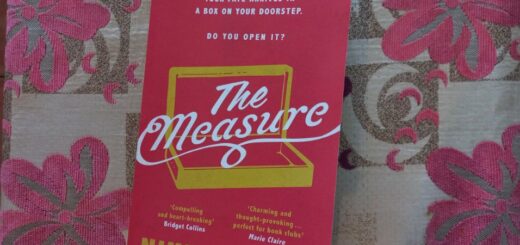Why You Need a Routine + Tips To Get There

Discussions about mental health have been a popular topic for a while now. So many people, including prominent figures, have brought the conversation to light. Some workspaces actively take the mental well-being of their employees seriously. Older generations are also reflecting on experiences with mental health, which may have been overlooked in the past. Ultimately, it is safe to say that education about the significance of mental health in this generation is more accessible than before.
After the many challenges Covid-19 brought about, we know the value of caring for ourselves. But how do we maintain our mental well-being during the ups and downs of life? You can’t just dedicate one day to mental health and expect all of your negative thought patterns to be cured. Staying mentally fit is a process that needs an amount of effort on our side. Thankfully, there are many ways to ensure our mental health does not deteriorate. The simple aspect of following routines can be one of the many ways to keep tabs on our mental stability.
Routine 101
A routine is a combination of activities that you repeat regularly. It’s a practice that can have fantastic health benefits. Having a routine is so effective that it has become a tool for those in recovery from addiction, addressing boredom which is a dangerous emotion while in recovery. Even though some people don’t struggle with addiction and are not susceptible to relapsing, having a set of habits is beneficial because it sets an intention for the day. This provides greater direction and focus in your day.
Nocawe Morake, a social worker, reinforces this by saying that a routine instils discipline and sharpens time management skills. “It helps you become more of an organised person. With a well-thought-out routine, you’re able to plan your days, so you don’t just do things without direction or planning”.

Routines are an excellent tool for holding you accountable to your obligations in life: for instance, staying fit, prioritising your mental well-being, and sticking to a consistent sleep regimen that will promote your physical health. A routine reinforces dedication, which holds you accountable for the roles that need to be attended to in your life. “Your routine needs to be consistent because if you are not consistent, you won’t achieve your goals,” says Morake. “So your routine should be a lifestyle”.
And here’s another reason why having a routine is so great for our health: the release of dopamine. Often we follow routines so that we can achieve a particular goal. When we set a goal, and again when we’re close to achieving it, the brain releases dopamine. This neurotransmitter helps you to feel pleasure and motivation.
Diet, Rest and Physical Activity
A hectic schedule during the day can lead to missing meals, overeating or regularly opting for takeaways. This can lead to inconsistent unhealthy eating habits. It’s well-known that unhealthy food choices can influence sleeping patterns, energy levels and overall health.
And how can you achieve a healthy diet? Morake says, “We are not experts [dietitians], but we know basic things; greasy food affects your mood. When you are overstuffed, you feel lazy and grumpy, but when you are eating well, you feel good and lighter at all times. So our diet is very important because it affects how we feel.”



Science indeed shows that an inflamed gut conveys signals to the brain leading to anxiety, stress or depression because of the connection between the gastrointestinal system and the brain. So instead of eating last night’s tempting dessert for breakfast, a nutritious breakfast is a far better choice for a healthy lifestyle. Regular home-cooked, good foods can then allow us to get a well-deserved good night’s sleep, turning it into a habit which can develop a suitable morning routine for you.
Now that we are aware of our decisions around our eating habits and are living our best nutritional lives, our bodies need to start moving! Physical activity has an abundance of advantages, and one of them is releasing endorphins, a.k.a the happy hormone.

“Exercising leads to the secretion of neurotransmitters which improve mental clarity, attention span, it also improves your memory, it lifts your mood,” says Morake. “Exercise also prevents cognitive decline.”
Exercising can benefit you during the last leg of winter, assisting those battling seasonal depression. Seasonal affective disorder (SAD) is a form of depression associated with late autumn and winter, as symptoms are more apparent in colder seasons. Exercising in winter can be more of a challenge because of the physiological and metabolic impact of cold weather; it becomes difficult for the body to perform in a harsher climate. Yes, finding any motivation to exercise in winter can be a drag. It should not discourage you, as exercising can help prevent the winter blues by producing those “happy” hormones and forming part of your routine.
Start and End Your Day Right
Now that there are examples, we can use them to construct our personalised morning and night routines.
What does a good morning routine look like? Well, that depends on how you intend to use your morning to be productive. A leisurely rise is ideal as it sets the tone for the day. For most of us, the morning is nothing but a complete rush, but giving yourself enough time to adjust to a new day filled with endless possibilities is essential. Rushing makes us on edge as there is this constant race to catch up with time. To avoid this crazy rush, make sure you sleep early the night before so you can wake up early to get all the things that need to be done in the morning calmly.

There are many ways a healthy morning routine can be approached. An example can be simply making your bed or chugging a bottle of water. Research shows that a bottle of water in the morning gets rid of toxins, makes you regular and hydrates the body after not drinking water for 5-8 hours. Simple everyday habits like showering or bathing can be self-soothing. Extend the routine by taking a few minutes to express gratitude and end it with a delicious, nutritious breakfast.
And what about a healthy night routine? A night routine has a significant influence on the following day. As much as it feels beneficial in the moment to leave things till later, the phrase “do the things the night before” is not a cliché you should shrug off. It is powerful, as things you avoid the night before will always be there in the morning waiting for you. Maintaining a night routine can help us get enough rest and have the luxury of rising slowly the following day.

“By having a routine at night, you are releasing that tension that you acquired throughout the day,” says Morake. “So it improves sleeping because you release all those negative hormones resulting in resting well at night.” A consistent routine trains our mind to submit to a specific time to fall asleep, thereby helping to prevent insomnia.
When it comes to bedtime, prepare for the next day, and take a moment to reflect. Journalling is not just therapeutic but allows you to see a different perspective, or you can try and sit for 5 minutes with your thoughts through meditation. Reading also really helps to knock you out.
Find a Routine that Works for You
Considering that people are not the same regarding schedules and lifestyles, it is critical to build a routine that will assist you in living a healthy lifestyle. We now know that physical activity has numerous health benefits, that a balanced diet influences how we feel, and that getting adequate sleep is necessary. It is entirely up to you how you want to include these factors into your custom morning and night routine. Decide what habits you want to create and adopt a consistent mindset when implementing your routine.


